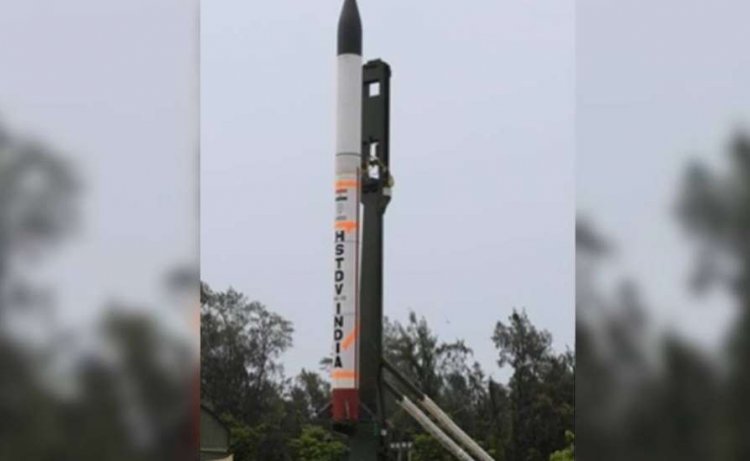India Joins US, Russia, China Hypersonic Missile Club

Odisha: India on Monday became the fourth country after the United States, Russia and China to develop and successfully test hypersonic technology from APJ Abdul Kalam testing range (Wheeler Island) in Balasore, Odisha. This indigenous technology will pave the way towards development of missiles travelling at six times the speed of sound (Mach 6).
The test of Hypersonic Test Demonstrator Vehicle (HSTDV), developed by Defence Research and Development Organisation (DRDO) was conducted at 11.03 am today using the Agni missile booster and lasted for five minutes.
People aware of the development said this test means that the DRDO will have the capacity to develop a hypersonic missile with scramjet engine in next five years, which will have the capacity to travel at more than two kilometres per second. The test was led by DRDO chief Satheesh Reddy and his hypersonic missile team. The HSTDV performed on all parameters, including combustion chamber pressure, air intake and control guidance, the agency said.
At 11.03 am, the Agni missile booster took the hypersonic vehicle to height of 30 km after which the latter separated. Thereafter, the vehicle’s air intake opened and that led to successfully firing of the test scramjet engine. The combustion lasted for more than 20 seconds with the vehicle achieving a speed of Mach 6. “The vehicle performed successfully on all the pre-determined parametres including the ability to handle combustion temperatures of over 2500 degrees Celsius as well as air speed,” said a senior official.
Defence minister Rajnath Singh congratulated the DRDO immediately after the test and praised their efforts to indigenously build a scramjet engine.
He said that it is a landmark achievement towards realising the vision of ‘Atmanirbhar Bharat’ (self-reliant India).
“The @DRDO_India has today successfully flight tested the Hypersonic Technology Demonstrator Vehicle using the indigenously developed scramjet propulsion system. With this success, all critical technologies are now established to progress to the next phase,” Singh tweeted.
“I congratulate to DRDO on this landmark achievement towards realising the Prime Minister’s vision of Atmanirbhar Bharat. I spoke to the scientists associated with the project and congratulated them on this great achievement. India is proud of them,” the defence minister said in another tweet.
The HSTDV is an unmanned scramjet demonstration aircraft for hypersonic speed flight. Besides its utility for long-range cruise missiles of the future, the technology has multiple civilian applications also. It can be used for launching satellites at low cost too, according to government officials.
The HSTDV cruise vehicle is mounted on a solid rocket motor, which will take it to a required altitude, and once it attains certain mach numbers for speed, the cruise vehicle will be ejected out of the launch vehicle. Subsequently, the scramjet engine will be ignited automatically.















































